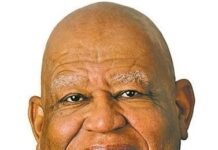 According to new research from Ohio State University and the University of Wisconsin-Madison, racial and ethnic gaps in criminal sentencing have declined significantly since the mid-1990s.
According to new research from Ohio State University and the University of Wisconsin-Madison, racial and ethnic gaps in criminal sentencing have declined significantly since the mid-1990s.
 For their study, the research team examined three data sets that collectively include more than 2 million criminal cases dating back to the 1980s or 1990s, depending on the source. The data sets are federal sentencing from 1992 to 2016; Minnesota Sentencing Guideline Commission data from 1981 to 2017; and State Court Processing Statistics data between 1990 and 2009, which consists of data from large urban counties in 25 states across the country.
For their study, the research team examined three data sets that collectively include more than 2 million criminal cases dating back to the 1980s or 1990s, depending on the source. The data sets are federal sentencing from 1992 to 2016; Minnesota Sentencing Guideline Commission data from 1981 to 2017; and State Court Processing Statistics data between 1990 and 2009, which consists of data from large urban counties in 25 states across the country.
In 1992, Black Americans were sentenced to roughly 27 more months in prison than White Americans, increasing to a difference of 42 months in 1996. Since then, the difference has dropped dramatically. In 2016, the gap was only eight months, an 80 percent reduction from 20 years earlier. Additionally, there were significant improvements in the racial gap of the probability of going to prison, rather than getting probation or another kind of sentence. In 1996, Black people in the federal system were nearly 14 percent more likely to receive a prison sentence than their White peers. That gap was halved, to about 7 percent in the mid-2000s.
Additionally, the researchers conducted an analysis of what is called the presumptive sentence. The federal system and some states give judges guidelines to follow when determining what the appropriate or typical sentence should be for a particular crime. The researchers found that in 1992, White offenders received 81 percent of the recommended prison sentences, while Black offenders received 90 percent of their presumptive sentences, resulting in a 9 percent difference. This difference shrunk slightly to 6 percent by 2016.
The researchers believe that there are several factors that have contributed to this decline in the racial sentencing gap. These include the election of Barack Obama in 2008 and the appointment of the first Black attorney general; the Fair Sentencing Act of 2010, which reduced the disparity in sentences for crack versus powder cocaine; and the increased media attention to the racial gap issue.
“I think it may have been changes in judicial norms. Judges don’t want racial disparities. They may have observed it happening and made adjustments along the way, trying to be more equitable,” said Ryan King, co-author and professor of sociology at Ohio State University. However, he stresses that just because these results demonstrate a positive trend, there is still work to be done. “We’ve come a long way in the United States, but the gap hasn’t disappeared.”
The study was presented at the American Sociological Association’s annual meeting on August 13 in New York. Some of the results were reported earlier in the journal Crime and Justice. Those results can be accessed here.










